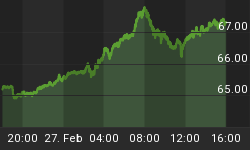President-elect Donald Trump told a Cincinnati audience this week that he intends to make some big changes in US foreign policy. During his "thank you" tour in the midwest, Trump had this to say:
We will pursue a new foreign policy that finally learns from the mistakes of the past. We will stop looking to topple regimes and overthrow governments. ...In our dealings with other countries we will seek shared interests wherever possible..."
If this is really to be President Trump's foreign policy, it would be a welcome change from the destructive path pursued by the two previous administrations. Such a foreign policy would go a long way toward making us safer and more prosperous, as we would greatly reduce the possibility of a "blowback" attack from abroad, and we would save untold billions with a foreign policy of restraint.
However as we know with politicians, there is often a huge gap between pronouncements before entering office and actions once in office. Who can forget President George W. Bush's foreign policy promises as a candidate 16 years ago? As a candidate he said:
I am not so sure the role of the United States is to go around the world saying 'this is the way it's got to be.' ... If we're an arrogant nation they will resent us, if we're a humble nation but strong they'll welcome us.
Unfortunately as soon as he took office, George W. Bush pursued a completely different foreign policy, attacking countries like Iraq at the urging of the neocons he placed in positions of power in his White House and State Department.
Some people say that "personnel is policy," and that much can be predicted about Trump's foreign policy by the people he has appointed to serve his Administration. That is where we might have reason to be worried. Take Iran, for example. While Trump says he wants the US to stop overthrowing governments, on the issue of Iran both the candidate and his recent appointees have taken a very different view.
Trump's pick for National Security Advisor, Michael Flynn, has said the following about Iran: "I believe that Iran represents a clear and present danger to the region, and eventually to the world..." and, "...regime change in Tehran is the best way to stop the Iranian nuclear weapons program."
Trump's CIA choice, Mike Pompeo, has said of President Obama's Iran deal, "The Iranian regime is intent on the destruction of our country. Why the President does not understand is unfathomable."
And Trump's selection for Defense Secretary, General James Mattis, was even more aggressive, saying, "The Iranian regime in my mind is the single most enduring threat to stability and peace in the Middle East. ...Iran is not an enemy of ISIS. They have a lot to gain from the turmoil in the region that ISIS creates."
Donald Trump's words in Cincinnati don't seem to match up with the views of the people that he's assigning to high places. At least when it comes to Iran.
While I hope we can take President Trump at his word when it comes to foreign policy, I also we think we should hold him to his word – especially his encouraging words last week. Will the incoming president have the ability to rein in his more bellicose cabinet members and their underlings? We can be sure about one thing: if Trump allows the neocons to capture the State Department, keeping his foreign policy promises is going to be a lot more difficult.
Buy Ron Paul's latest book, Swords into Plowshares, here.















